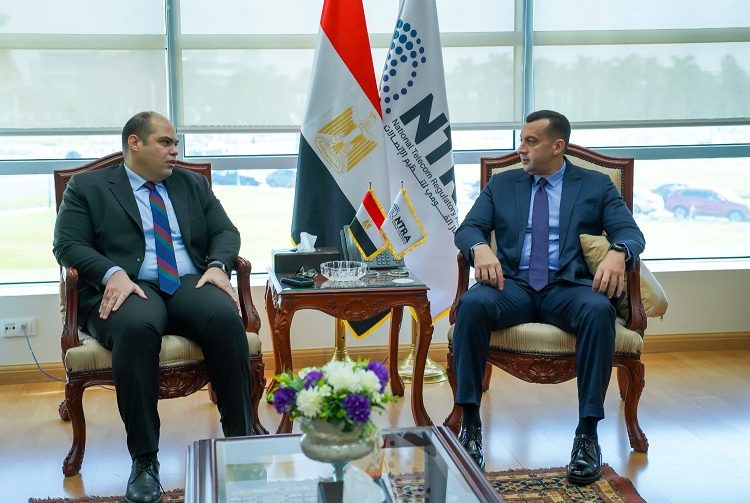The National Telecommunications Regulatory Authority of Egypt (NTRA) and Egyptian Competition Authority (ECA) had a meeting with real estate developers as well as mobile operators at NTRA’s headquarters. The meeting was held in the presence of New Urban Communities Authority’s representatives to discuss governance and regulation of telecom services for the dwellers of closed urban compounds, after several complaints about difficulty in service utilization and limitation of choice were raised by users at such compounds.
During meeting, guidelines of telecom service regulation, including the law terms regulating telecom services and prohibiting monopolistic practices, were reviewed. Furthermore, the problems faced by users at closed urban compounds, the solutions to such problems and how to avoid them in future were all tackled, in coordination with real estate developers and telecom service providers operating at these compounds.
The guidelines also entailed all obligations that should be assumed by both real estate developers and telecom operators to rightly carry out the measures of service provision within closed urban compounds and ensure users’ freedom of choice while selecting their most suitable operator, in compliance with Telecommunication Regulation Law No.10 of 2003 as well as Protection of Competition and Prohibition of Monopolistic Practices Law No.3 of 2005.
On his part, Eng. Hossam El-Gamal, Executive President of NTRA, emphasized that user satisfaction with telecom services is one of NTRA’s major priorities; therefore, it is crucial to seamlessly follow up customer complaints and issue regulatory as well as governing instructions to resolve such complaints. It is also important to cooperate with other regulatory authorities to have a unified vision and adopt a common methodology aiming at protecting the rights of users and ensuring that services are easily accessed and utilized, Eng. El-Gamal also pointed out.
Moreover, Dr. Mahmoud Momtaz, Chairman of Egyptian Competition Authority, said his Authority has been recently studying ICT competition problems to encounter any monopolistic practices in this vital sector, based on which many violations, that have to do with service provision within closed urban compounds, were detected. Therefore, ECA cooperated with NTRA to issue and carry out instructions after all parties have been heard to, in order to ensure competitiveness across the market which would allow users to freely choose and shift telecom operators without any impediments whatsoever.
Cooperation between both authorities aimed to make sure users are not enforced, by any means, to deal with certain individuals or get irrelated products. It also meant to ensure services are provided in the highest quality at the most affordable prices.
It’s noteworthy that NTRA and ECA had previously signed a joint cooperation and understanding memorandum to form a permanent joint committee that takes on reinforcing the ecosystem of free competition protection in Egypt’s telecom market. The memorandum was further signed to polarize and uphold more new investments and maintain the current ones.
It also aimed to implement integrated regulatory as well as supervisory business mechanisms in the field of telecommunications specifically, being the mainstay of digital transformation, and make sure to eradicate any monopolistic practices which might have a negative impact on the services provided for users in Egypt’s telecom market.
NTRA, pursuant to Law No.10 of 2003 on Telecommunication Regulation, is the sole entity authorized to regulate telecom sector in the Arab Republic of Egypt to ensure all the requirements of individuals, as well as corporate, productive, administrative and servicing sectors are met with respect to telecom services and to encourage investment on non-monopolistic basis under the umbrella of free and open competition and the protection of user rights.
ECA is also the authority entitled to monitor all economic activities and takes the needed measures to investigate, search and collect evidence to curb agreements and practices that might result in preventing, limiting, or harming the freedom of competition in Egypt, as per Protection of Competition and Prohibition of Monopolistic Practices Law No.3 of 2005.






Discussion about this post